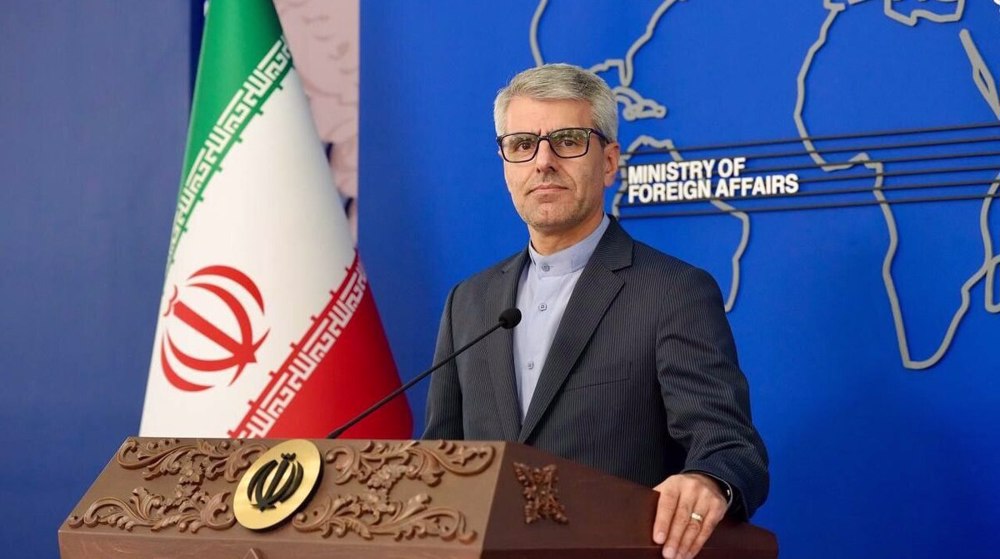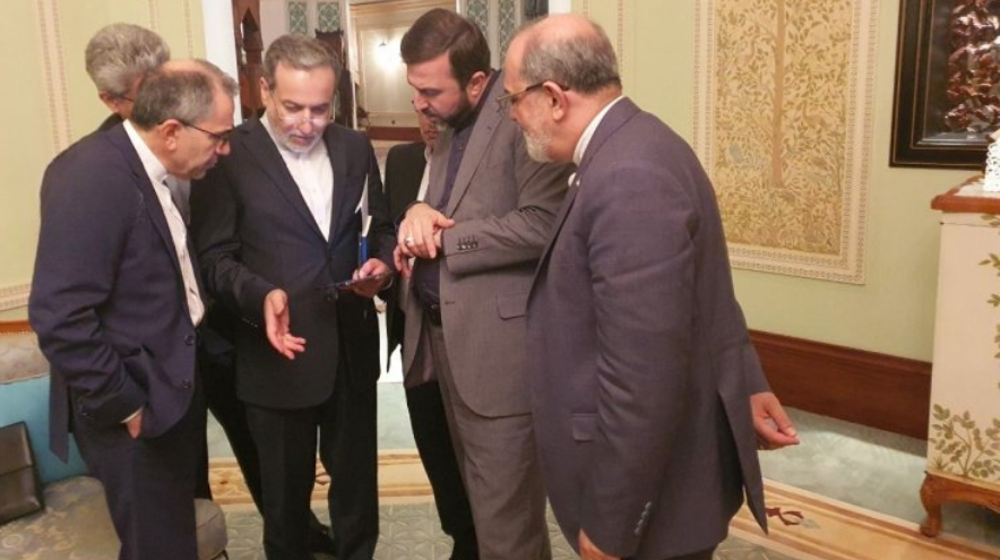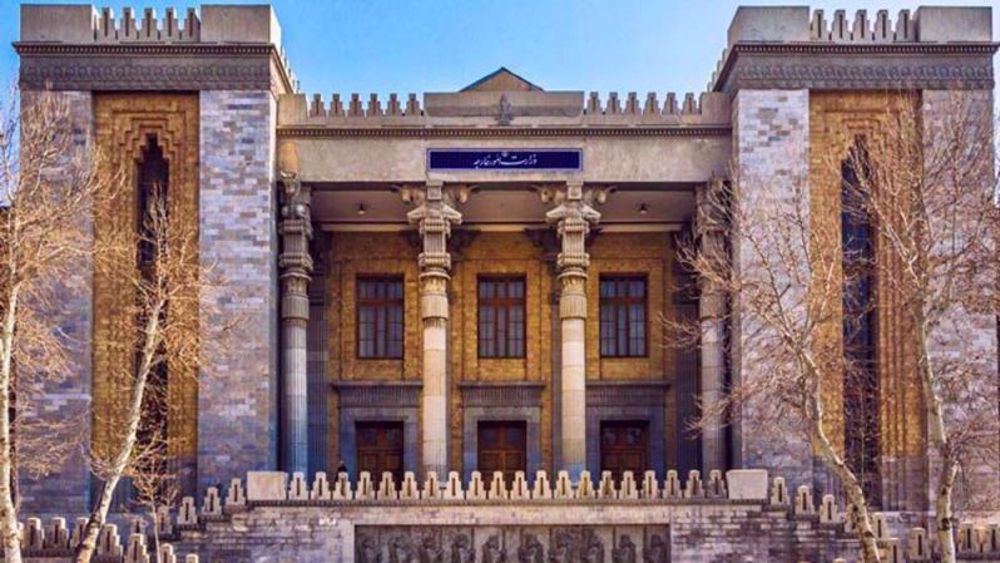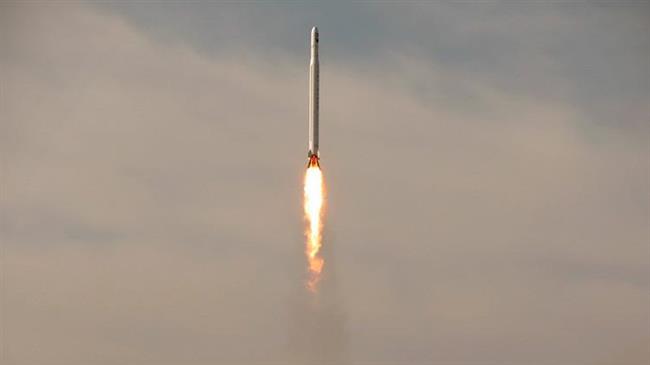Iran receives signals from military satellite, vows new surprises
The Commander of Iran's Islamic Revolution Guards Corps Aerospace Division has said that the country is receiving signals from its recently launched Noor satellite and that it plans to launch a future satellite in higher orbit.
Speaking on Thursday, Brigadier General Amir-Ali Hajizadeh said that Iran had received the satellite’s signals from stations near the capital Tehran and the southeastern cities of Zahedan and Chabahar following its launch.
“We received the latest signal last night,” he added, explaining that the satellite orbits the earth every 90 minutes.
“The satellite’s configurations will be fully set in a few days allowing the satellite to attain its full operational capacity,” he added.
Iran’s first military satellite, dubbed Noor-1 (Light 1), was launched into orbit some 425 kilometers above the Earth’s surface on Wednesday.
Also in his remarks, Hajizadeh stressed the importance of space technologies in addressing Iran’s civilian and military needs.
He added that the development of the satellite was a “super project” made possible by undertaking major leaps in the technology field.
The general added that the IRGC seeks to launch a future satellite “in a higher orbit and with better performance” in the “near future”.
Explaining that Noor’s satellite carrier – dubbed Qased (Messenger) – used a missile engine from Iran’s existing missile arsenal operating on liquid fuel, the general said that future motors will be upgraded to work with solid fuel.
Solid fuel will allow for the production of smaller satellite carriers, he said.
Hajizadeh added that the Qased’s structure had also been made of composite material, a “complex” and “state-of-the-art” feature decreasing the weight of the missile.
The general also noted that the Noor satellite’s communication and telecommunication systems had been fully designed and manufactured inside the country.
Satellite launch ‘caught western intelligence by surprise’
Also in his remarks, Hajizadeh said that the satellite launch had “caught western intelligence agencies by surprise”.
“It is natural for them to be frustrated by what we’ve done,” he added, stressing that the force will continue with its space operations “with force” to protect the country.
Hajizadeh added that Iran’s military capabilities have allowed the country to focus on countering US economic sanctions imposed on the country without facing security disturbances.
Hajizadeh also noted how Iran’s capabilities had successfully deterred Washington from further provocations after Iran responded to Washington’s assassination of its top commander, Lieutenant General Qassem Soleimani in January.
“During the Ain al-Assad operation we believed the Americans would respond and we had prepared 400 targets, but they did not,” he said.
A few days following the assassination of General Soleimani, Iran launched salvos of missiles at two bases housing US troops in Iraq’s western Anbar Province and Kurdistan regional capital, Erbil.
Despite the attacks leading to widespread destruction and casualties, Washington did not follow up on its vow to attack if Tehran targeted US assets in response to General Soleimani’s assassination.
‘New surprises on the way’
In a tweet on Thursday, Secretary of Iran's Supreme National Security Council (SNSC) Ali Shamkhani also said that “new surprises are on the way” as the country battles US sanctions and pressure alongside the coronavirus outbreak in the country.
Sanctions & threats cannot slow down our trend to pursue its national interests & legal rights. The continuous production of power & use of up-to-date knowledge for security & welfare of #Iran people from hospitals to space will continue. New surprises are on the way.
— علی شمخانی (@alishamkhani_ir) April 23, 2020
“The continuous production of power & use of up-to-date knowledge for security & welfare of Iran people from hospitals to space will continue. New surprises are on the way,” he said.
The US claims that medical equipment and medicines are technically exempt from the sanctions, but their purchases and imports are blocked by bank’s unwillingness to process payment over fears of heavy US penalties.
Iran has now stepped up the production of its own medical equipment, such as ventilators needed for COVID-19 patients.

Iran warns ‘moving the goalposts’ could derail Tehran-Washington talks

Iran’s enrichment ‘non-negotiable’, talks fruitless under pressure: FM

Iran summons Argentine envoy over accusations against top officials
VIDEO | Press TV's news headlines
VIDEO | Paris rally condemns Israel, decries killing of Palestinian journalists
VIDEO | Italy's Meloni visits US to discuss Trump's tariffs as EU unity at risk
VIDEO | Syria under HTS
1 killed as US keeps up deadly escalation against Yemen
ICC sues Hungary for failing to arrest fugitive Israeli war criminal Netanyahu
VIDEO | Western coverage of Israeli war on Gaza
VIDEO | US's broken commitments










 This makes it easy to access the Press TV website
This makes it easy to access the Press TV website